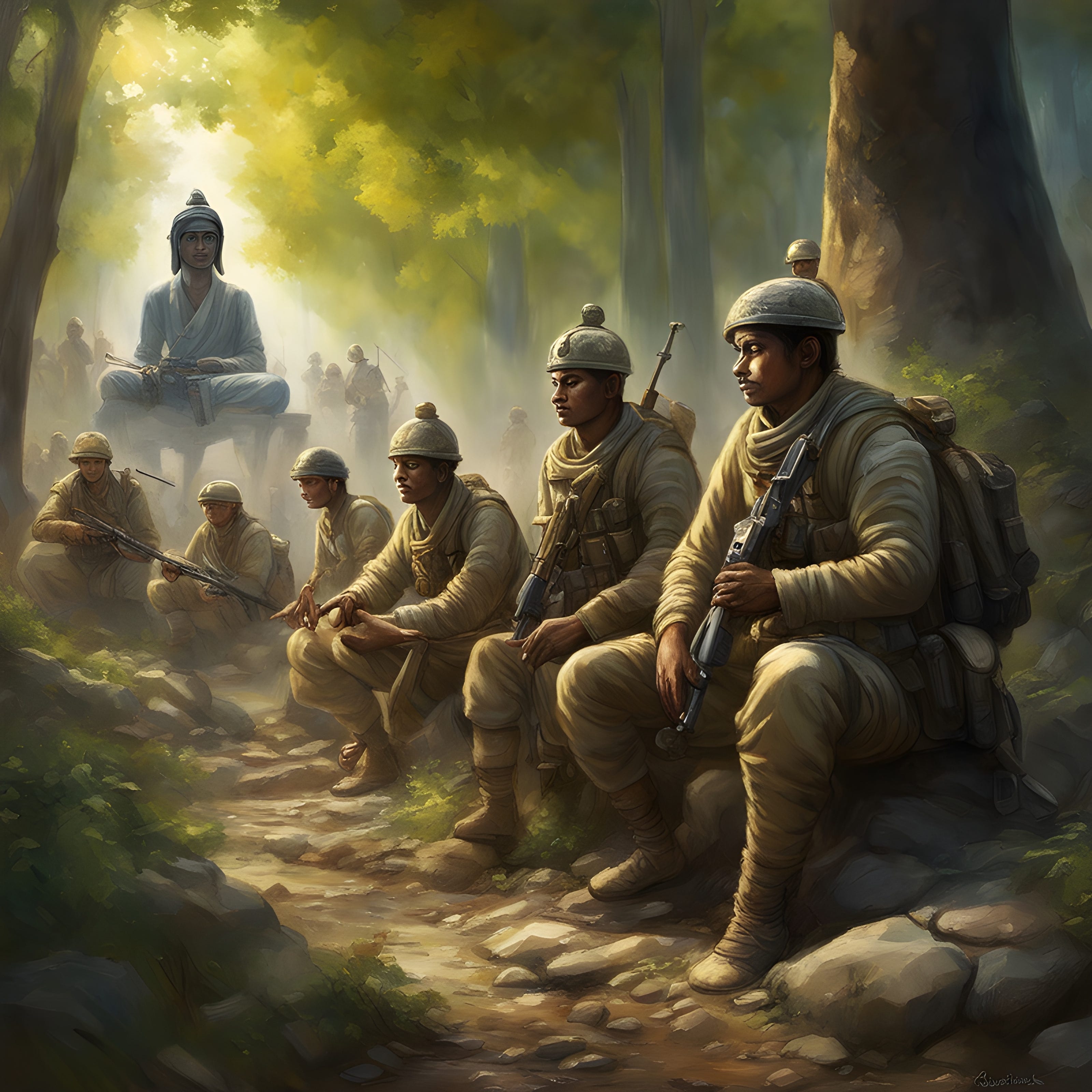अथ चेत्त्वमिमं धर्म्यं सङ्ग्रामं न करिष्यसि |
ततः स्वधर्मं कीर्तिं च हित्वा पापमवाप्स्यसि || ३३ ||
If, however, you do not fight this religious war, then you will certainly incur sins for neglecting your duties and thus lose your reputation as a fighter.
The Bhagavad Gita (/ˌbʌɡəvəd ˈɡiːtɑː/; Sanskrit: भगवद्गीता, lit. '"God's Song"', IAST: bhagavad-gītā[a]), often referred to as the Gita (IAST: gītā), is a 700-verse Hindu scripture, which is part of the epic Mahabharata. The work is dated to the second half of the first millennium BCE.
The Bhagavad Gita is set in a narrative framework of dialogue between the Pandava prince Arjuna and his charioteer guide Krishna, an avatar of Vishnu. At the start of the Kurukshetra War between the Pandavas and the Kauravas, Arjuna despairs thinking about the violence and death the war will cause in the battle against his kin and becomes emotionally preoccupied with a dilemma. Wondering if he should renounce the war, Arjuna seeks the counsel of Krishna, whose answers and discourse constitute the Bhagavad Gita. Krishna counsels Arjuna to "fulfil his Kshatriya (warrior caste) duty" for the upholding of dharma. The Krishna–Arjuna dialogue covers a broad range of spiritual topics, touching upon moral and ethical dilemmas, and philosophical issues that go far beyond the war that Arjuna faces. The setting of the text in a battlefield has been interpreted as an allegory for the struggles of human life.
I have nothing but respect for soldiers in general. Soldiers take an oath in good faith to protect their loves ones and countrymen from danger, they are willing to give their lives to protect their fellows. It's an honorable thing to take up the burden of this duty.

The society which soldiers defend also have a duty of care to look after them if they are injured, mentally or physically, and the leaders of the government have a duty to issue just and honorable orders to make sure their soldiers are not forced into dishonorable wars where their humanity is put at risk. I'm sure as you read these words you can immediately think of multiple occasions where the duty of care to our collective military was not observed, where, to use an Elizabethan expression, they were "poorly used".
Keep reading with a 7-day free trial
Subscribe to Beautifully Broken to keep reading this post and get 7 days of free access to the full post archives.




